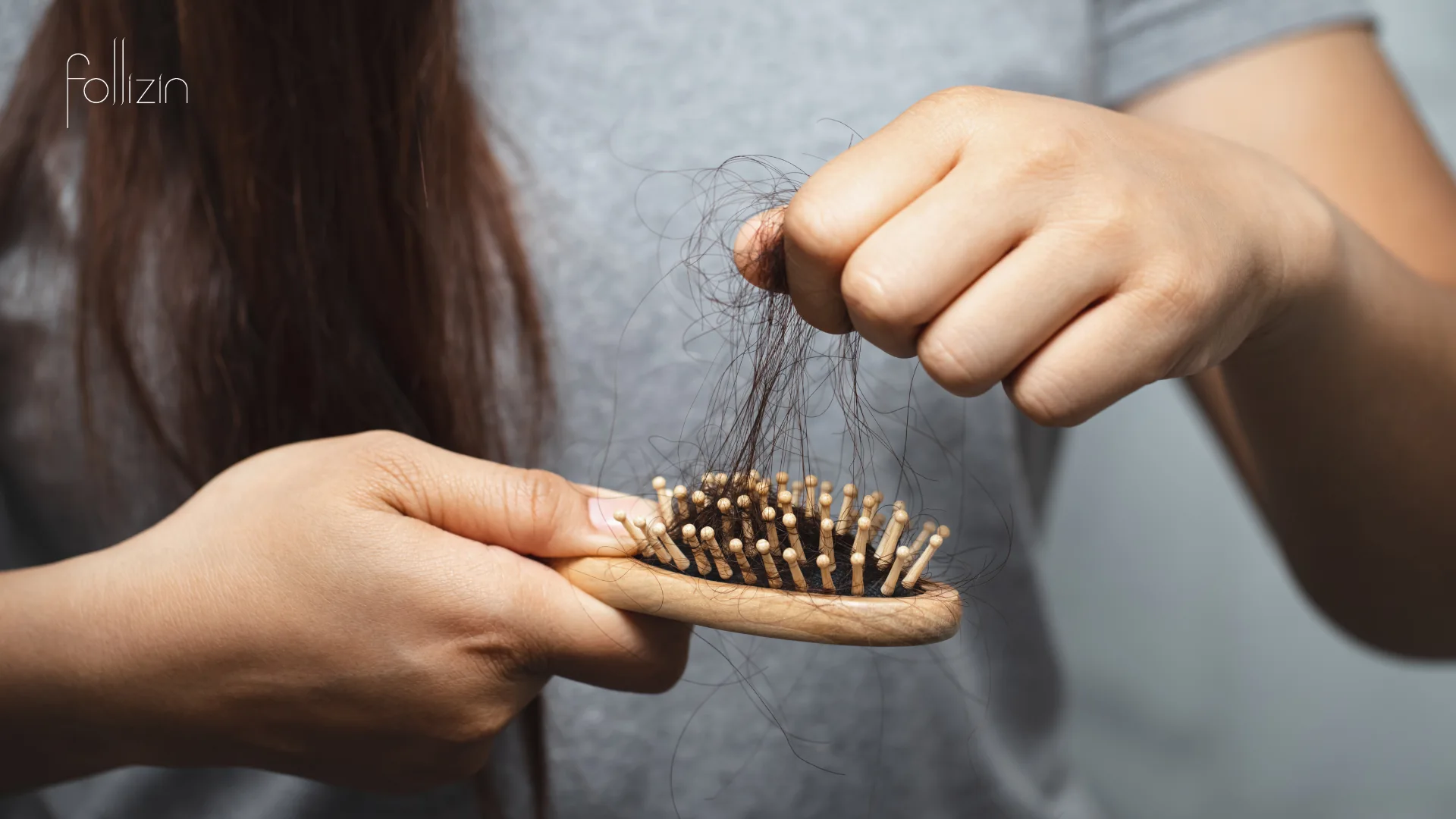Hair loss is a common concern that affects both men and women. Whether it’s noticing more hair in your hands after shampooing or seeing your scalp becoming more visible, it can be frustrating. Follizin dives into the root causes of hair loss, its connection to scalp health, and how proper scalp care can help you regain strong, healthy hair.
What Is Considered Hair Loss?
It’s normal to lose between 50-100 strands of hair daily. However, excessive shedding or noticeable thinning could indicate a hair loss problem. Common types of hair loss include:
- Androgenetic Alopecia (Hereditary Hair Loss): The most common cause, leading to gradual thinning and receding hairlines in both men and women.
- Alopecia Areata (Patchy Hair Loss): An autoimmune condition causing coin-sized bald patches on the scalp.
- Telogen Effluvium (Sudden Hair Loss): Often triggered by stress, surgery, childbirth, or severe illness, resulting in temporary shedding.
- Trichotillomania (Hair-Pulling Disorder): A psychological condition where individuals pull out their hair, often unconsciously.
How Is Hair Loss Related to Scalp Health?
A healthy scalp is the foundation for strong, beautiful hair. When the scalp has issues, such as dryness, oiliness, dandruff, or inflammation, it can lead to hair loss:
- Dry Scalp: Causes brittle, split ends and breakage.
- Oily Scalp: Clogs hair follicles, leading to dandruff and hair fall.
- Dandruff: Irritates the scalp, causing itching and hair shedding.
- Scalp Inflammation (e.g., Seborrheic Dermatitis): Weakens hair roots, resulting in hair loss.
How to Address Hair Loss Through Proper Scalp Care
Here are some tips to keep your scalp healthy and reduce hair loss:
1. Choose the Right Shampoo and Conditioner
Use gentle, sulfate-free products tailored to your scalp type—whether oily, dry, or sensitive.
2. Wash Your Hair Correctly
Shampoo with lukewarm water, massage your scalp gently, and rinse thoroughly to avoid product buildup.
3. Avoid Excessive Heat Styling
Heat tools like blow dryers, flat irons, and curling wands can weaken hair strands and cause breakage.
4. Eat a Balanced Diet
Include protein, vitamins, and minerals in your diet to nourish your hair from within.
5. Manage Stress
Stress is a major contributor to hair loss. Practice relaxation techniques like exercise, meditation, or listening to music.
6. Consult a Dermatologist
If hair loss persists or worsens, seek professional advice for accurate diagnosis and treatment.
Taking care of your scalp is key to reducing hair loss. Start today to enjoy thicker, healthier, and more beautiful hair without worrying about hair fall affecting your confidence.

